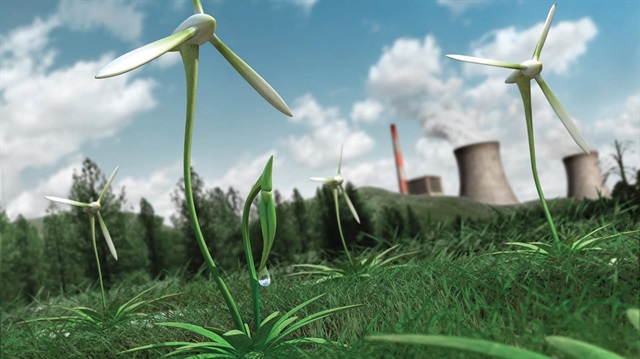
It was based, just to give an example, on sun, with solar cells technology, wind, with the forest of white windmills shaping the landscape, and hybrid and alternative sources of energy. But after a while, it disappeared from the official speeches of the White House and the business bogged down (not in this order). Why? Basically because all the devices that transform natural energy into electrical power need a dynamo. The dynamo needs a magneto, the magneto needs rare lands. More than 80 percent of that material was, at that time, produced in China mainland (there were some mines even in Vietnam and Iceland). Beijing year after year was a miser in selling the simple raw material, because it wanted to get into the business of components production. End of the story. In 2011, the first wave of Green economy was already put in the archive. The U.S. and China didn't find a deal. Just to have an idea of numbers: the Toyota Prius needed 16 kilograms of rare lands, the giant dynamo of a windmill hundreds times more.
About a month ago, press agencies echoed the market success of the Tesla Sedan electrical car already launched in 2012 (even one of these cars burned out in 5 minutes, in France last August). It has a fine shape, some luxury features, and a nice price of "only" USD 30,000, the promise of a worldwide network of recharging stations that will provide a fast refilling of energy "for free". It seems like a tale. Maybe it is the dreams of another Silicon Valley techno-utopian, a kind of merger between Ayn Rand and some hyper logical devotees. But this time, behind this Green economy revamping project there is Elon Musk. A modern alloy of Thomas Edison, Henry Ford and Howard Hughes, according to his supporters; a brilliant and visionary entrepreneur emerged from the crises of dotcoms that is building toys for rich people, according to his detractors. He is surely a smart guy, because during the time in which clean-tech companies businesses have gone bankrupt, Musk has built two of the most successful clean-tech companies in the world. Tesla motors and Solar City. But he did better with SpaceX, as a low cost supplier for space industry. One of the key products (under test) is a reusable rocket that can carry payloads to space and land back on Earth on the same launch pad. Another vector, Falcon Heavy can take up twice the payload of the nearest competitor - the Delta IV Heavy from Boeing/ULA - at one third the cost.
A project is challenging not only the giants of the U.S. military-industrial complex, like Lockheed-Martin and Boeing, but even countries like Russia and China. You cannot achieve such a huge task without a sound political backing, even in U.S. What does it mean? It means that there is a wind of "change" in America that is searching for an actor to put on stage to revamp the American dream, reshape the economic hegemony, find a new narrative to keep alive hopes for the future and help to downsize the power and economic net linked to the old way to establish industry. Elon Musk and his visionary way to build project came at the right moment to fit the gap in economic vision for the future. And maybe he can give a second chance to Green economy to rise again and turn out the world from carbon age. But this could be just wishful thinking and Musk could be just another surfer of the economic wave that could be forgotten after the first failure.
But if Mark Zuckerberg wants to help you share baby photos, Musk wants to "save the humanity from a self-imposed or accidental annihilation", according to him. A sentence that depicts what his horizons are.
Just to explain how much pays Musk's vision, there are useful quotes from his past business record. Compaq bought his first "baby" the Zip2 for USD 307 million in 1999. Elon made 22 million from the deal. As the largest shareholder in PayPal, he became a real tycoon when eBay acquired the company for 1.5 billion USD in 2002. So there should be something sound behind Musk's rising. Some years ago a Pentagon guy, Jonathan Huebner, wrote a paper "A possible declining trend in worldwide innovation". In short, he stressed a key point of middle 2000 age: we wanted flying cars, instead we got 140 characters of Twitter. It matches a shared sense among people of decreasing trust in technological ability to create a better world. It was a warning bell coming from America, a country that based its supremacy on human advancement thanks to science, human resources exploitation and a peculiar political system.
The 2008 financial crises made this problem more critical for the system, already in difficulties since the end of the '90s, because of globalization malfunction. Maybe the young visionary tycoon coming from South Africa could be the right answer to renew U.S. industry.














